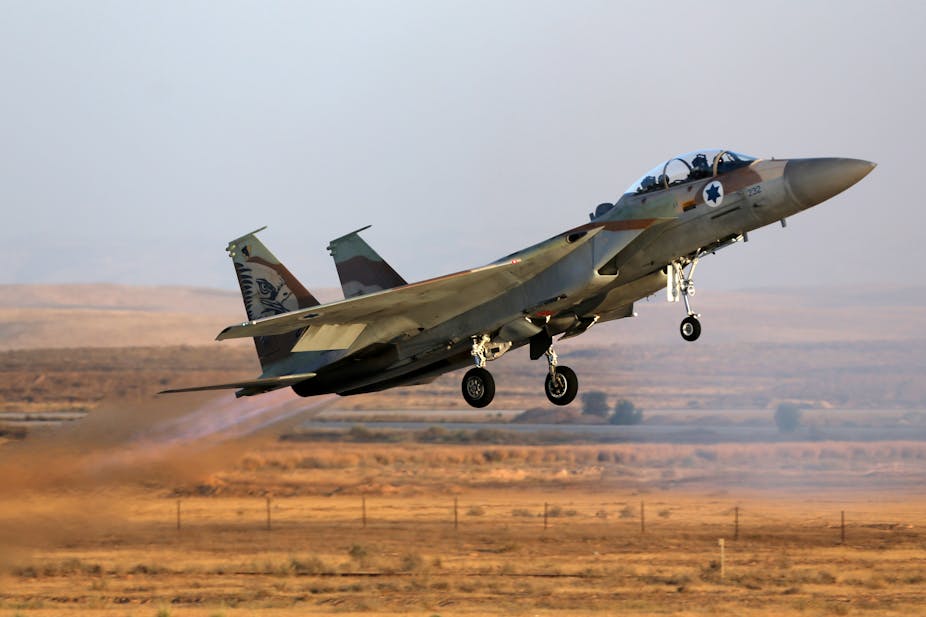News reports circulated last week that Israeli warplanes had bombed targets in Syria, leading to widespread fears of yet another knot in an already nightmarishly tangled conflict. This is not the first time since the Syrian uprising that Israel has been accused of attacks inside Syria – and, as with the shooting down of a Syrian military plane in September, there has been no official comment from Tel Aviv.
The embattled regime of Bashar al-Assad in Damascus, however, alleged that the sites were airfields or airport-related. This has given rise to speculation that Israel is undertaking pre-emptive strikes to close down the shipment of arms through Syria from Iran to Israel’s enemies in Lebanon, chief among them Hezbollah – the Shia militia which has fought alongside Syrian government forces in support of the Assad regime.
Bloodied but unbowed
Israel emerged from its 2006 war with Hezbollah with something of a bloodied nose and a renewed determination to limit Hezbollah’s fighting capacity. Yet since 2012, Hezbollah has remilitarised and embroiled itself in Syria defending the Assad regime. It has fought alongside Syrian state forces to repel Sunni jihadist elements, and has apparently also embroiled itself in Iraq, where it has allegedly fought to cut down the forces of the Islamic State.
Along with the pro-regime role played by Hezbollah in Syria in fighting off the threat off fanatic Sunni jihadi elements such as Jabhat al-Nusra and IS, the Assad regime has recently benefited from US air-strikes against the same such targets.
To date, Israel has avoided embroiling itself in this particular part of the Syrian tangle. but this may change with news that in addition to its Hezbollah headache, Sunni Islamists in the jihadi Jabhat al-Nusra now control border territories in the Golan Heights, which abut Israeli territory.
The Ministry of Defence in Tel Aviv has always been clear on what it will accept regarding both Lebanon and Syria, and its officials are obviously very nervous of the prospect that any weapons might end up in the hands radical groups operating there.
Political motives?
One might expect Israel to be somewhat lacking in appetite for further conflict after the traumatic war in Gaza just months ago. But Israeli politicians preparing for elections recently - and suddenly – called by Binyamin Netanyahu will use the various ongoing security issues to portray themselves as the most effective defenders of Israel.

And the timing of the attacks raised some speculation in Israel’s media that there were connections or political motivations which augured well for Netanyahu and his political supporters against the elements of his collapsed coalition.
After all, Netanyahu won significant support and popularity from the Israeli public during the war on Gaza, even as Israel’s international standing took a hammering thanks to the deaths of more than 2,000 Palestinians, including many children.
For the time being, Israel is likely to be content with occasional and publicly deniable air strikes against its enemies in Syria. Its strategists clearly continue to identify Hezbollah as its most significant security threat on its northern front.
They will not, in any case, be ignoring the Sunni jihadis of Jabhat al Nusra or IS, but these elements are being fought by other powers – chiefly the US – whom Israel knows it can trust to help maintain its security and sovereignty.
The enduring battle with Hezbollah is, in so many ways, one that Israel fights alone. It is but one consequence of Israeli forces’ more than 20 years’ occupation of sovereign Lebanese territory. For that reason, Israel has an appetite to take on Islamic foes such as Hezbollah in Syria – but it knows it can afford not to engage the rest for the time being.

